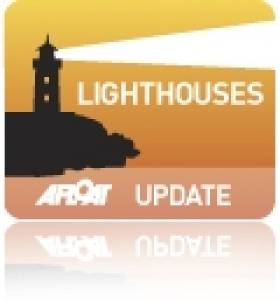Displaying items by tag: Navigational Aids
Hard-Working Vessels Keep Lights Switched-On
Sailing was not the only activity that took place in Dublin Bay last Saturday as the Northern Lighthouse Board's (NLB) multi-function tender NLV Pharos was busy at work, writes Jehan Ashmore.
The NLB is the Scottish equivalent of the Commissioners of Irish Lights (CIL) and it is not unusual for such vessels to share work duties beyond their respective jurisdictions. The 84m NLV Pharos is equipped with dynamic positioning and a 30-tonne main crane on her 300m2 aft-deck.
Overall she is similar in appearance to Irish lights ILV Granuaile which is based out of Dun Laoghaire. The Irish Lights tender built in Romania in 2000 tends to operate more often off the west coast during the summer months due to the more favourable weather conditions.
The 1,300 (dwt) deadweight tonnes NLV Pharos yesterday returned to her base in Oban from her Irish duties. The west coast base was established in 1904 and is also homeport to the service's smaller NLV Pole Star which is equipped with an 18-tonne crane on her 90m2 aft deck.
The facility in 2000 underwent a £4.2 million redevelopment to turn a buoy yard into a multi functional support base which is computer-linked to the NLB headquarters in Edinburgh.
In addition Trinity House which maintains the service for England and Wales operate the tenders THV Galtea,THV Patricia and the fast-response craft THV Alert from their base in Harwich.
Trinity House forms the trio of the General Lighthouse Authorities (GLA) alongside NLB and CIL. Each member of the GLA co-operate in the allocation of vessel-tender deployment.
Asides the varied and critical role of the tasks performed by the GLA's tenders, they are also available for charter to third parties. Between them the tenders can conduct buoy and chain work, search and rescue, lighthouse re-fuelling, salvage and recovery, towing, hydrographic applications and ROV work.
























































